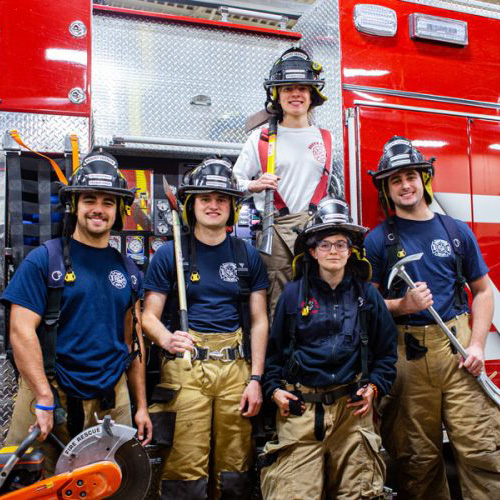Civic Engagement Minor
Civic engagement minor at Cornell
By pursuing the civic engagement minor at Cornell, you can help implement change in corporate America, in the local economy, in rural and remote regions, in busy urban spaces, or on a much wider global scale—wherever your passion for change leads you. Being civically engaged requires a deeper understanding of the world around you and a drive to improve it.
Coursework for this minor is interdisciplinary and is designed to help you become a more thoughtful and informed citizen of the world. You’ll study ethics, political systems, social issues, and public scholarship and policy. Plus, you will make a real impact on the community through volunteering and immersive projects.
This is what it means to be a changemaker at Cornell.
Civic engagement minor course requirements
Your coursework for the civic engagement minor will develop hands-on skills and foster critical thinking about the world around you. You will need to take a minimum of six course credits, including:
- Three core courses
- One course in critical thinking/research methods
- One course concerned with efforts to address societal issues
- One course in applied civic engagement
- A minimum of 25 non-credit hours of civic engagement involvement over the course of at least two semesters, including volunteering, activism, and other civic engagement opportunities
Taking action in the community
Cornell students have partnered with the United way of East Central Iowa to provide tax assistance to the community. The Volunteer Income Tax Assistance (VITA) site is available at Cole Library during tax season.
Take action with service learning opportunities
Through coursework and community involvement, you will achieve an increased awareness of society's challenging problems. Want to work hands-on with your community? You’ll have the opportunity to gain direct experience working with a local organization, progressing from learning about social problems to actively working toward a resolution. In fact, in a typical year at Cornell, more than 350 students volunteer 1,800 hours for a value of over $57,000. There are many ways to get involved.
Our distinctive block plan structure will enable you to experience aspects of civic engagement and service learning that are outside the reach of undergraduates at colleges on a traditional semester plan. You can even use civic engagement coursework to complete an Ingenuity in Action experience. Experiential learning means you meet people working in the real world on issues you care about. In other words, you aren’t anchored to just reading about policy and its impact—you will see it firsthand.
Alumni support Tanzania Water Projects
Three Cornell College alumni talk about how they're involved with bringing clean water resources to Tanzania, and how people there are using their water resources to create a future for their families and their communities.
Experiences that make an impact
Your experiences volunteering and working with the community will serve you throughout your lifetime. These opportunities are constructed to hone your critical thinking, collaboration, and communication skills—skills highly valued by employers across industries. They are also a great way to gain hands-on experience. In recent years, three students served on the Mount Vernon-Lisbon Emergency Medical Services team, and five students volunteered with the Mount Vernon Fire Department. Additionally, Cornell Lunch Buddies pairs over 60 Cornell students with third graders at Washington Elementary each week.
That’s why 82% of business leaders are more likely to choose a candidate with volunteer experience, because they know they are gaining highly valued employees who can think through challenges and know how to implement actions that work toward a solution.
Satff in the Berry Career Institute can help you craft a resume that will make the most of the work you complete in civic engagement at Cornell.

